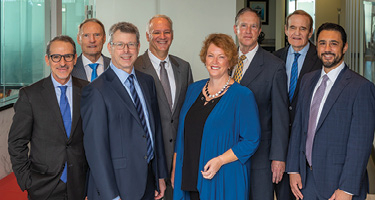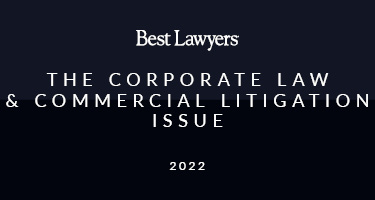States are reopening at different paces, which means businesses are opening their doors once again. This leads to the question, should businesses be sheltered from COVID-19-related liability lawsuits? Phillip Greer, CEO of Best Lawyers, moderates a panel of three lawyers from different practice areas to get their input on liability concerns businesses may face as they reopen during this uncertain time.
Mark P. Henriques
Partner, Womble Bond Dickinson
Charlotte, NC
Recognized by Best Lawyers in Commercial Litigation since the 19th Edition and Litigation - Construction since the 24th Edition
Mark currently co-chairs Womble Bond Dickinson’s COVID-19 Task Force. He understands the needs of today’s in-house counsel and regularly discusses them on his podcast, In-house Roundhouse Podcast. Mark has successfully litigated cases involving construction, real estate, fraud, unfair trade practices, class actions, non-compete, non-solicit and non-disclosure agreements, and breach of contract.
Sharon L. Caffrey
Partner, Duane Morris
Philadelphia, PA
Recognized by Best Lawyers in Mass Tort Litigation / Class Action - Defendants since the 22nd Edition
Sharon concentrates her practice in the areas of mass tort, product liability, and toxic tort litigation. Her extensive trial experience also includes trying dozens of product liability, mass tort, health effects, and medical negligence cases to verdict, the vast majority to defense verdicts. She is a member of the U.S. Chamber of Commerce COVID-19 Working Group as well as the Chamber's Liability Reform Group.
Randel K. Johnson
Partner, Seyfarth
Washington, D.C.
Recognized by Best Lawyers in Government Contracts since the 26th Edition
Randel works with clients to troubleshoot problems that arise on Capitol Hill or in the regulatory agencies. This can take the form of specific confidential, targeted relief, or broader long-term efforts. He worked for 20 years as senior vice president for labor, immigration, and employee benefits for the U.S. Chamber of Commerce. Randy has worked with numerous companies across the economic spectrum, many of which have needed narrow, company-specific, relief, while other situations required building a broader movement on the part of the business community to defeat industry-wide adverse legislation or regulatory initiatives.

































